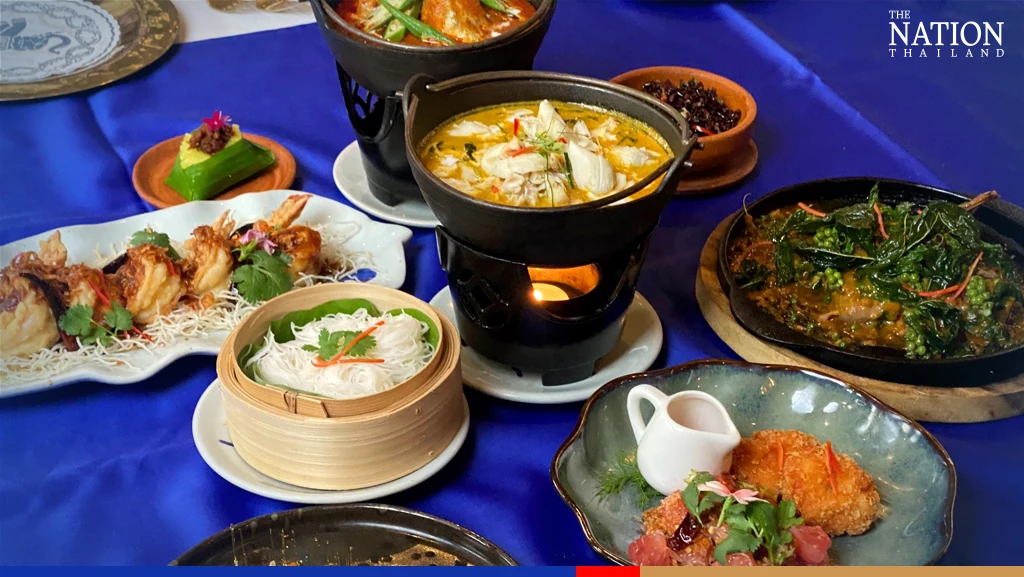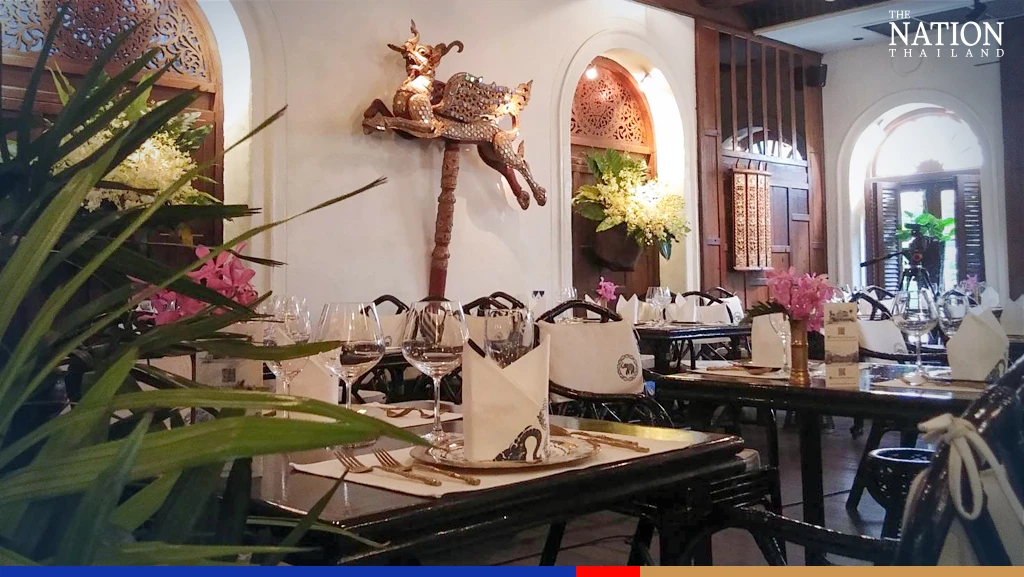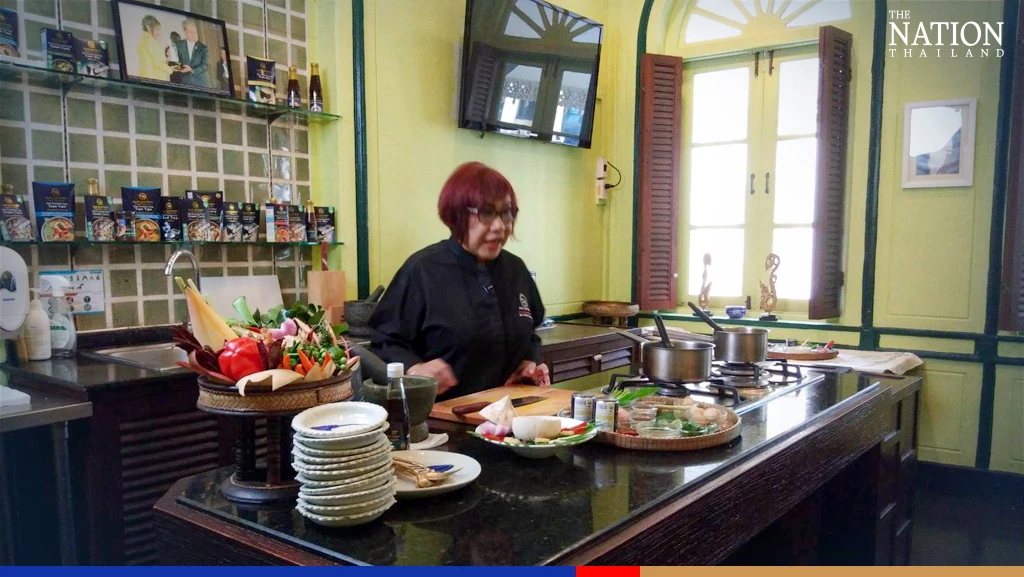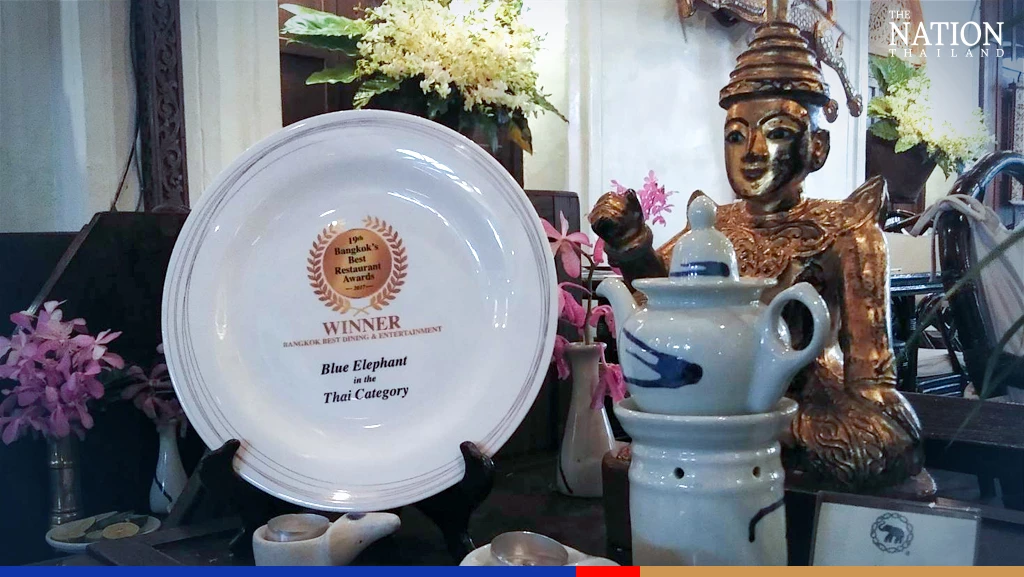#SootinClaimon.Com : ขอบคุณแหล่งข้อมูล : หนังสือพิมพ์ The Nation.
https://www.nationthailand.com/business/corporate/40019973

SUN, SEPTEMBER 11, 2022
Delicate Authentic Flavours Are Not Enough To Ensure Success In The Thai Fine-Dining Business Today. Adding Consciousness About Sustainability Is A Key To Level Up, According To Blue Elephant, A Well-Known Global Thai Fine Restaurant Chain.
Thai cuisine is popular around the world because it is marketed as the healthiest meal which the rich of herbs. Many non-Thai customers visit Thai restaurants around the world. In 2017, seven Thai dishes were named in CNN Travel’s “World’s 50 Best Foods” list, which was based on an online poll of 35,000 people.
According to statista.com, revenue in Thai food market amounts to US$65.31 billion in 2022. The market is expected to grow annually by 5.83 per cent.

Blue Elephant Group and Blue Spices Vice Managing Director Kevin Somany discusses his goals and challenges after half-inheriting this 42-year-old Thai fine-dining restaurant in an exclusive interview with The Nation in order to stay at the forefront of this competitive market.
Blue Elephant, which opened in Brussels, Belgium in 1980, was one of the first well-known Thai fine dining restaurants among foreigners.
After years of tremendous success, the Blue Elephant Restaurant and Cooking School returned to its homeland, opening in Bangkok in 2002, followed by a Phuket branch in 2010. The Blue Spice factory, the Blue Elephant group’s manufacturing arm, was then opened in 2006.

Kevin concedes that the authentic taste of genuine traditional Thai cuisine at Blue Elephant restaurants, and their other spice products, such as curry pastes, sauces and seasonings, have given them global recognition. These key elements, however, cannot be their sole unique selling points to sustain the business in the long run.
Adding more items to the menu, creating more products and more services will help, but they will not be enough to make Blue Elephant and Blue Spices any different from other Thai restaurants, he points out.
“When you come out with any new products, it has to have something unique beyond normal standards,” Kevin says, and that’s when he discovered the critical part of the sustainability factor.
Kevin says that Blue Elephant has been concerned about people, the community, and the environment since its inception. It is the guiding principle of chef Nooror Somany Steppe and her husband, restaurant founder Karl Steppe.
Hence, all he needs to do now is make those principles visible and concrete.

That’s when he and his management team decided to go for a makeover in the packaging of all Blue Spices products, including their pastes, sauces, spices, and cooking sets in 2020.
“The change is in the very small details, you have to observe closely to see it,” says Kevin, as he demonstrates their products.
All the cardboard used for packaging is 100 per cent from trees certified by Forest Stewardship Council, meaning the trees are harvested from forests that are responsibly managed, socially beneficial, environmentally conscious and economically viable.
Besides, the packaging has been redesigned to eliminate the use of plastic film coating, no more see-through windows to prevent a plastic, non-toxic water-based matted coating, and a smart lock pack to eliminate the use of glue or Polyvinyl chloride sticker.
Furthermore, the package is labelled with a new logo to certify that the improvement is in the nature of more eco-friendly packaging, Kevin points out.

“As Blue Elephant, no one doubts our quality and the authentic Thai traditional taste. However, in every change, we have to add a bit more level of delicacy that will please our customers,” Kevin noted.
He says that the market has reacted favourably to the products. Blue Elephant sold 3.5 million units of products just before Covid. With people staying at home during the pandemic and a growing interest in Thai cuisine, it peaked at 4.6 million units, with curry pastes accounting for 70 per cent of sales.
However, he believes that a part of the reason people from other countries choose Blue Elephant is not only the savoury flavours, but also the innovative eco-friendly packaging.
According to a study on “Thai Cuisine to Global Market” by Napavarn Noparatnaraporn, an expert in biodiversity, one of the most important things that draws customers’ attention is creative and distinct packaging. Furthermore, food producers must be concerned about society, the environment, and the global food market in the near future.
“Our biggest market is the USA, followed by Switzerland, Austria, Israel and Hong Kong. The Netherlands, despite a year-long disruption, could be added to this list as it has always been in the top 3 and is about to be back in the top 5,” says Kevin.

Kevin is currently moving forward with his plan to expand its Pathum Thani factory, where work was temporarily suspended due to the pandemic. The new factory will be twice the size of the old one and will begin production in 2024.
“The demand is growing stronger and stronger. With the factory expansion, we can increase production, manpower, and use a more sustainable method. We are in the midst of a young generation that is just stepping in. Hopefully, we will be able to continue for the next hundred years,” Kevin states.
Blue Spices now has four main product categories: ready to cook, ready to eat, ready to heat, and ingredients.
“I think Blue Elephant is a great concept and my dream would be to have one Blue Elephant in every major city in the world. There are many places that deserve to have a Blue Elephant restaurant,” Kevin says.

Currently, there are four Blue Elephant restaurants in operation: Bangkok, Phuket, Copenhagen, and Malta. They did, however, manage to expand their Blue Spice products to 45 countries worldwide, with more new markets on the way.
In addition, they provide cooking-based curry pastes, dipping and dressing sauce to airlines, hotels, and Thai restaurants as well as Thai cooking classes.
Sustainability has been a buzzword for many years as a result of the global environmental crisis. The United Nations declared climate change an emergency and urged all parties to do more to protect the environment.

The term is also thought to be a key secret to success for many businesses looking to expand and is projected to skyrocket in developing economies and emerging markets in the coming years
Fortune Business Insights found out that the global green technology and sustainability market is expected to grow from $13.76 billion in 2022 to $51.09 billion by 2029.
